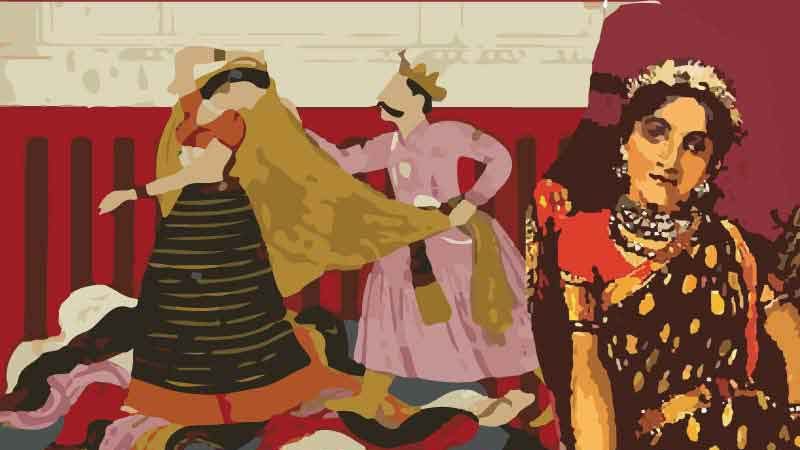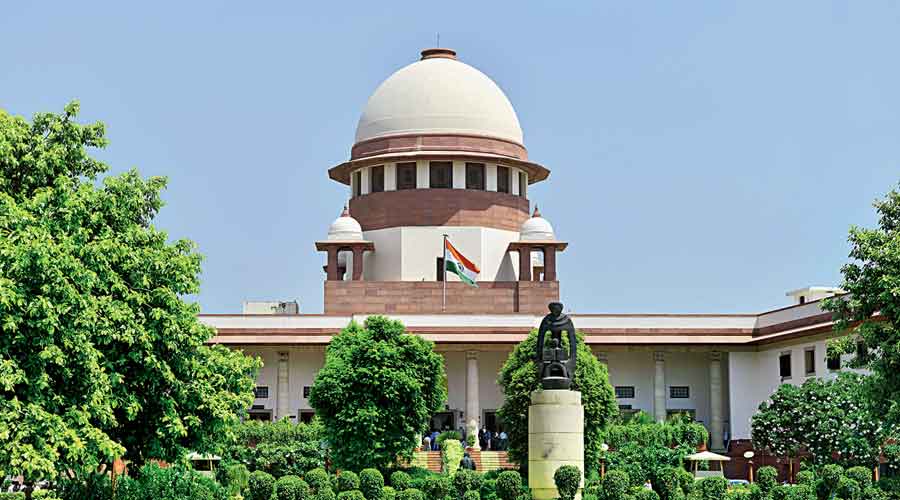Arvind Jain is a senior advocate at the Supreme Court, dealing with cases pertaining to atrocities on women. His book, Aurat Hone Ki Saza, themed on how the Indian law sees women, was well-received. This letter was written by him prior to the Supreme Court judgment on adultery law, in which he cautioned about various interpretations of section 497 by different courts. In the wake of the verdict of the Supreme Court, his letter acquires more significance. – Editor
A LETTER TO MY SISTER
- Arvind Jain
Dear sister!
I received your letter. After going through it, I wonder what advice I should give to you. After reading, deliberating and pondering over all the legal provisions, I can only conclude that you cannot get your husband punished for ‘adultery’ because, what your husband is doing is not ‘adultery’ in the eyes of the law. Even if it were so, you don’t have any right to get him punished. You can only seek divorce and, that too will be difficult to get, in the absence of any concrete evidence and witnesses.
Even if you manage to get divorce after making rounds of the courts for years, paying huge fees to the lawyers and mudslinging at each other, what will you achieve? Where will you go? How will you spend the rest of your life? Chances are meagre that you will get the custody of your children and let’s assume that you get it; then, how will you afford their education? Is it easy to get a job nowadays? Even if you get one, you may have to quit, you never know what sort of sexual predators you may find at your workplace. And if you remarry, there is no guarantee that your new husband won’t be like your earlier one.
Our society is yet to create a space where a woman can live alone with dignity. At the moment, I have no answers to your questions. You are well aware of my situation. It is not a question of one, two or ten days, but of your entire life. Bauji and Ammaji are not even aware of it. I wonder what will happen when they get to know about it.

You are right in saying that ‘Men dominate our society, Parliament, power structure, education and legal system.’ Rules, regulations, laws, traditions, morality, ideals and principles all have been designed by men and they keep redefining and changing them from time to time to protect their interests. Women have always been kept under the thumb in the name of their honour and pushed to the margins of the society. Right from my grandmother to me, nothing has changed. Whatever little appears to have changed is a deception. Aren’t all the laws – right from laws on foeticide to Sati – a farce in the name of women’s welfare? Perhaps, this pain was the inspiration behind Padma Sachdev’s lines ‘Maa paida hote hi betiyon ko maar kyon nahin diya’ (Oh mother, why didn’t you kill your daughters at their birth) (Desh Milawa in Sabad Milawa).
It is true that women have been deprived of the fundamental right of equality and equal legal protection in spite of the provisions made in the Constitution. It is argued that this has been done in their interest because the state is empowered to make special provisions for women and children (Article 14 and 15(3) of the Constitution).
May be, you are not aware that the 157-year-old law dealing with adultery (section 497 of the Indian Penal Code, 1860) remains valid in the same form even today. I don’t know whether or not society felt any need to change it, but a woman had certainly challenged its Constitutional validity. However, the judges of the highest court of the country ruled in favour of the law (Mrs. Soumitra Vishnu Versus Union of India, All India Reporter, 1985 Supreme Court 1618). Y. V. Chandrachud was the Chief Justice at that time.

In the eyes of law, your husband is not committing any penal offence. How is it unlawful to have relations with sex workers, call girls or other women? According to section 497, if a man has sexual intercourse (not rape) with the wife of another man without his consent or connivance, he is guilty of the offence of adultery for which he can be punished with imprisonment for a term of five years or with fine or both. But, in such case the wife shall not be punishable as an abettor. On the other hand, a divorce case can be filed either by the husband or the wife on ground of consensual sexual intercourse with another person after their marriage (not earlier). It means, the definition of adultery for the purpose of punishment is one and for divorce, it is another.
Another obvious interpretation of section 497 is that adultery refers to having relations only with someone else’s wife, and that too is pardonable if her husband has consented to or connived with the other man. Thus, if two husbands mutually swap their wives, it is not considered adultery. I wonder if it happens in Indian society but a few years back, I had definitely read a story in this context. I could hardly digest it for several days. (Gyanprakash Vivek’s story Antatah in October 1998 issue of Hans, pg 24).
Anyway … this means that with mutual consent, your husband can have sexual relations with any adult woman whether she is a widow, a divorcee or unmarried without having violated any law, irrespective of whether she is his own mother, sister, daughter, aunt, sister-in-law, tai (wife of elder uncle) or even niece. Nevertheless, marriage with some of these women is legally not tenable. He is free to maintain physical relations with a married woman as well, provided her husband has no objection. The husband may or may not mind or he may ignore if he has some vested interest. Perhaps everything is legitimate to secure one’s interest! Have you read Shaniji’s story Imarat Girane Wale and the novel Dilo Danish by Krishna Sobti? If not, you must read them.
Overall, the legal interpretation is that the wife is her husband’s property. If he wants, he will use her, if he is unwilling, he won’t. If he wants, he will allow someone else to use her, if he doesn’t, he won’t. The wife’s own wish, willingness or consent is meaningless. Having physical relations with another woman without the consent of her husband may lead to imprisonment for the man and divorce for the wife. If the husband is an adulterer, the wife doesn’t have even the right to complain against him or his partner (Section 19 of the Criminal Penal Code).

You are probably not aware that the judges, while hearing arguments on the constitutional validity of section 497, had said that the law does not permit a husband to have sexual relations with other women (whereas it does), but it holds a specific type of sexual relations – extra-marital relations – as an offence. An unfaithful husband always takes the risk (?) by establishing such relationship or perhaps invites civil suit for divorce by his wife.
I agree that the wife can seek divorce from her husband on the basis of adultery, but if we take into account the social realities, it is the wife only who gets victimized because divorce is considered to be a synonym for curse and a tool for the wife to get rid of her husband. Moreover, divorce litigation is no child’s play.
The judgment further accepts, “These are not options for each other or it can be said that they cannot file a case of adultery (criminal) on each other but there are provisions in civil law under which any of them can file a lawsuit (divorce) against each other on the grounds of adultery.” A better interpretation has been provided in civil law rather than criminal law. If we accept the argument of theplaintiff, section 497 will have to be dropped from the statute books. In that situation, adultery will further go unbridled and it will become impossible to punish anyone for committing adultery. Therefore, the interest of society lies in “limited adultery remaining punishable” and if unlimited adultery spreads, so be it.
ALSO READ: SIGNIFICANCE OF DECRIMINALIZATION OF ADULTERY FOR SHUDRAS AND ATI-SHUDRAS
You should understand that the important aspect (ironically) of the SC verdict is that striking down section 497 would be detrimental, although the judges also admitted that nothing substantial will be gained by investigation of the charges of adultery pressed against the plaintiff, as her husband has already obtained divorce on the ground of abandonment. The judges, while rejecting husband’s complaint (against the lover of the wife) filed under section 497, directed that the matter should be put to rest now (danger lies ahead).
You may argue that the charge of adultery under criminal law and filing of a divorce case under civil law are two different things: If the goal of law is restricted only to enable divorce on the grounds of adultery, then how is striking down of section 497 harmful to the society? And, if the adultery law holds constitutional merit, to what extent it is appropriate for the country’s highest court to reject the complaint filed against an adulterous man by saying that it will not lead to any fruitful gains.
Yes, I too feel that the court has given a fair judicial verdict to all by granting divorce to one man (riddance), acquitting the other and branding the woman as adulterous and leaving her on crossroads without declaring so publicly. At least, justice was not done (although it has to be believed to have been done).

I believe that the legal provision for adultery (section-497) has not only granted complete freedom of debauchery to men but somewhere it has also given them the right to objectify their wives to serve their interests. Lately, several news reports related to indulgence of wife and husband together in prostitution have appeared which further strengthen my belief.
If so say so, it must be true that your husband enjoys the company of ‘call girls’ in hotels for weeks since he has accumulated lots of wealth by illegitimate means. I believe section 497 is a legal protection which has led to the spread of prostitution and ‘call girl’ business in the society on a large scale. In the existing law relating to prostitution i.e. Immoral Trafficking in Women (Prevention) Act, there is no provision that makes the male client (or your husband) guilty of any crime. The ones who are caught are the sex workers, call girls or the flesh-peddlers. Transactions worth billions take place in flesh trade every year but what about the economic condition of sex workers?
The law gives legal rights to men to the extent of raping call girls, sex workers and any woman with immoral character. Before amendment, section-155(4) of the Indian Evidence Act, 1872 read that in order to demolish the credibility of the witness, a person accused of rape just has to prove that the woman is of a questionable character. This means that the offence of rape is pardonable if the immoral character of the woman is proved. Do men have a legal right to rape sex workers or call girls? Countless decisions of the Supreme Court like ‘Mathura’ and ‘Suman’ can be cited in this regard.
Indian law doesn’t only overlook rape with sex workers, call girls, or women of immoral character but also doesn’t consider forceful sexual relations with the wife of more than 18 years of age as rape (exception to Section 375 of Indian Penal Code). Few years back, a court in England, had declared forceful sexual relations of a husband with his wife as rape. However, expecting any such ruling in India at this stage is preposterous.
Just like you, many questions strike my mind too. Although section 497 pertaining to adultery has been upheld as Constitutional, are all constitutionally-valid laws also morally convincing? Why don’t the courts act as the watchdogs of social ethics? Irrespective of whether social ethics share any relation with the law or not, shouldn’t the law have its own moral standing? Isn’t the deep chasm between social ethics and law promoting immorality and adultery in society? Hasn’t the law completely failed in controlling growing cases of immorality and adultery in the society? Aren’t the cases of marital tensions, quarrels, assault, divorces, suicides and murders increasing due to illicit relations, due to lack of check on adultery? Why do women suffer the most from the perils of adultery? Is it because no choice or escape route has been left for them?
I feel that divorce-related provisions are better than criminal law because they declare any physical relations, other than between the wife and husband, as adulterous. Though the definition therein is better but how difficult or easy it is to prove adultery? By and large, this provision is used by men to humiliate and get rid of their wives by falsely accusing them of adultery. Such allegations are often made for denying maintenance allowance because legal provisions for defence have been made to suit this.
In a divorce case (AIR.1982, Delhi 328) on the ground of adultery, a wife caught her husband in a compromising position with a girl in a room and she filed for divorce. She could have been granted divorce but while hearing the appeal, Justice of the High Court, Mahendra Narayan observed that this was not a case of adultery and the maximum that it could amount to was discourteous behavior of her husband since it was not proved that the husband had sexual intercourse with the girl, which is integral to the legal definition of adultery. To substantiate the verdict, two judgments from England were cited according to which masturbation or physical relation without cohabitation of wife with another person would not amount to adultery. At one place (page 331) in the same judgment, it is remarked that in vitro fertilization doesn’t amount to adultery.
You will observe that in vitro fertilization was not considered adultery. Is it because it doesn’t require sexual intercourse or men don’t mind attaining fatherhood through this route? Fatherhood is also attained and nobody comes to know about the husband’s impotency. Though the wife has the right to conceive artificially, the decision and the right to adopt a child vests solely in the husband, the wife’s consent is merely a formality. Indeed, our law and society have such double standards.
It is true that men and women are equal partners in illicit relations. Two adult men and women can share whatever relation they want to with each other, but the manner in which married women are discriminated against in the existing legal framework is unjust and iniquitous. Wife must be given the right to file case against an adulterous man or his girlfriend under criminal law. But the male-dominated society fears that it will not only ruin their indulgence but also the entire system of flesh trade, the instruments of exploitation and regulation of women. Without having a connect with social ethics, laws cannot do any good to society. If the law cannot become a guardian of social ethics, how could it become a guardian of justice? Then, it must be admitted that the courts don’t deliver justice but merely pronounce verdicts and the judge doesn’t stand for ‘Justice’ but is merely an adjudicator. Isn’t justice impotent in absence of morality?

Here is a lawyer into the business of advocating men only, there is a brother burdened with middle-class mentality and traditions and a person deliberating, fretting, wriggling simultaneously over society, literature, politics and judicial system and determined to break and reconstruct everything. He is very lonely and sad but not disappointed at all. Law, society, family, relatives, friends, all probably will not be able to extend much help to you, but you are not alone … and even if you were, you are not too weak and incompetent to find honourable ways to lead your life on your own. I had blessed you with prosperity forever. However, your prosperity is not dependent on your husband. You have immense possibilities hidden within you, have you even tried to identify and hone them? You are not helpless, hopeless, constrained and handicapped. In fact, having heard it repeatedly, you may have started believing that it is so. What will change even if you ensure that the punishment is handed over? Don’t worry, whether you get the divorce or not. Murder or suicide is no solution to the problem. Swear by your son that you won’t do anything as such.
Lastly, I would simply say that you should plan to come home without indulging in any quarrels. Get ready with all the necessary documents, clothes, cash, and jewellery. I am sending my daughter’s birthday invitation card separately in the name of Jija(ji). Next Saturday, I will myself come to fetch you. Meanwhile, post three inland letters addressed to me, bhabhi and Bauji. If needed, we will get the letters written later. Rest assured; everything will be fine. Jija ji will either eat humble pie seeking divorce with mutual consent or find himself behind bars. You just have to be a little ‘pragmatic’. After all, right means don’t always bring the desired result.
Lots of love to your son
With blessings
Your lawyer brother
PS
Before I could finish writing this letter, a fresh verdict came in. On 27.09.2018, a Constitutional bench of five Supreme Court judges, in the case of Joseph Shine versus Union of India (Criminal Writ Petition 194/2017), declared section 497 (adultery) of the Indian Penal Code unconstitutional. The court could not have done anything else. After all, giving wives the right to complain against their husbands would have exposed the patrons of patriarchy. Now, men have got free rein to enter into extramarital relation with married women. How is it a crime in absence of any law? Henceforth, ‘adultery’ can only be a ground for wife and husband to approach courts for seeking divorce.
The views of Justice Dhananjay Chandrachud are exactly opposite to his father Justice Y.V. Chandrachud’s stand in the case of Soumitra Vishnu vs Government of India. There will be far-reaching consequences of the verdict. In the name of gender equality and women’s liberation, this decision will only give unrestricted freedom for adultery / debauchery / exploitation / flesh trade. This is the essence of new sociology of patriarchy in changing times and society. Now the young torchbearers of patriarchy (including homosexuals) demand ‘complete sexual freedom’; they know the ways and means of gaining it at all costs. However, women have not gained anything from this decision and they could not have.
At last, let me point out, only last week, the Supreme Court of India while turning down its earlier decision on section 377 (homosexuality) of the Indian Penal Code, 1860, said that even homosexual intercourse between consenting adult males and females (unnatural sex) in private will not be considered an offence. It means that patriarchy has initiated ‘complete sexual revolution’ by giving liberty of gay sex to their sons and daughters. Well … further when we meet.
(Translation: Devina Auchoybur, Copy-Editing: Amrish Herdenia)
Forward Press also publishes books on Bahujan issues. Forward Press Books sheds light on the widespread problems as well as the finer aspects of Bahujan (Dalit, OBC, Adivasi, Nomadic, Pasmanda) society, culture, literature and politics. Contact us for a list of FP Books’ titles and to order. Mobile: +917827427311, Email: info@forwardmagazine.in)
The titles from Forward Press Books are also available on Kindle and these e-books cost less than their print versions. Browse and buy:
The Case for Bahujan Literature
Dalit Panthers: An Authoritative History







